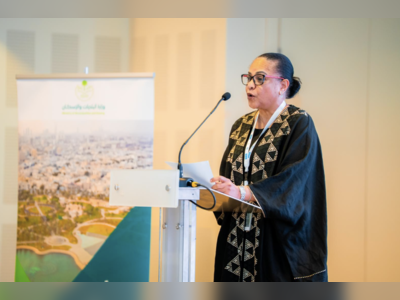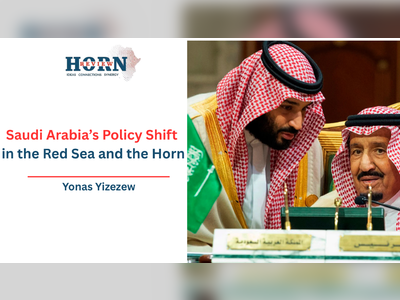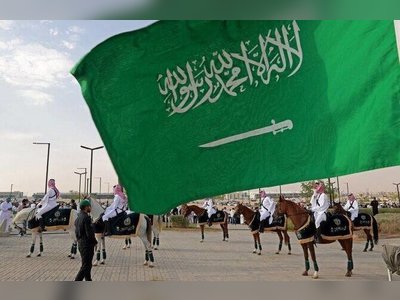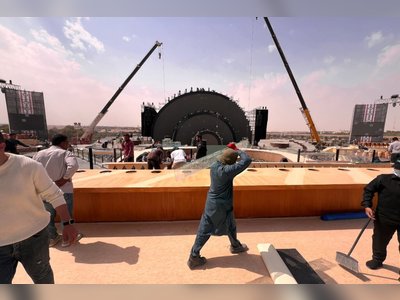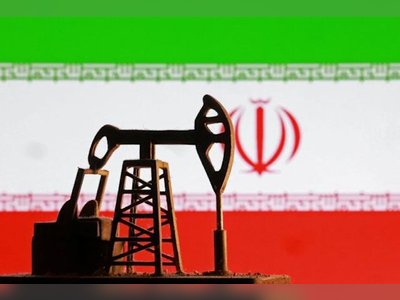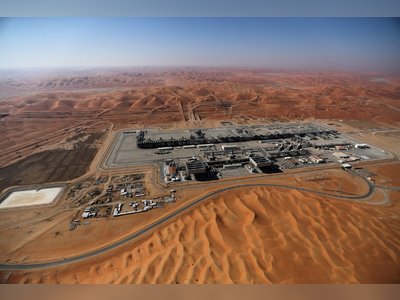Watchdog report says Trump admin ignored risk to civilians in Saudi arms deal
Democrats and some Republican lawmakers opposed the arms deal, arguing that the weaponry could contribute to the rising death toll in Yemen’s civil war.
The Trump administration failed to assess the risk of civilian deaths when it approved the sale of bombs and other weapons to Saudi Arabia last year, according to a government watchdog report released Tuesday.
But the State Department did not violate the law on arms exports when it declared an “emergency” to bypass Congress and push through the weapons deal worth $8.1 billion, the report said.
The office of the State Department inspector general “found that the Department did not fully assess risks and implement mitigation measures to reduce civilian casualties and legal concerns associated with the transfer of PGMs included in the Secretary’s May 2019 emergency certification," said the report, referring to precision guided munitions.
Congress requested the inspector general investigate President Donald Trump’s May 2019 decision to take the extraordinary step of waiving the need for a 30-day congressional review of a major arms sale. Secretary of State Mike Pompeo invoked the rarely used provision to bypass Congress, declaring an emergency due to tensions with Iran.
The inspector general’s report did not evaluate whether the emergency declaration was justified, and it noted that the State Department has wide discretion under the law on arms exports and how to define an emergency.
The probe into the Saudi arms deal played a role in Trump's abrupt dismissal in May of then-Inspector General Steve Linick, who was conducting the investigation, NBC News has previously reported.
Lawmakers have launched an investigation into his firing and raised alarms about the sacking of other government inspector generals, accusing the president of trying to undermine oversight of the executive branch.
The State Department said in a statement released Monday that the Office of Inspector General’s (OIG) report represented a vindication for the department and that it had abided by the law.
“The transfers were essential to bolster the security of the Gulf region and our ally Israel against the sharp increase in Iranian aggression in 2019,” it said.
“Over the course of the OIG’s 13-month inquisition, the OIG interviewed 46 Department employees – an astounding expenditure of taxpayer resources,” the department said.
Now that the report is out, the department said it hoped Democrats in Congress “and media outlets who echoed their baseless accusations will publicly accept the findings of the report they requested from the OIG and immediately retract their statements from the past year.”
The report included a number of redactions, including details on the timeline of the State Department’s decision making in the run-up to the emergency declaration in late May.
NBC News obtained an unredacted version of the report that showed the State Department was considering an emergency declaration as early as April 3, more than a month before Pompeo briefed Congress on threats from Iran and before the emergency decision was issued on May 24.
The inspector general found that State Department officials proposed a possible emergency declaration after Pompeo asked for options on how to secure approval for the arms transfers. On May 4, Pompeo “asked the Bureaus of Political-Military and Legislative Affairs to complete the process of certifying the emergency by May 24, 2019,” according to the unredacted version of the report.
On May 21, Pompeo met with lawmakers to brief them on threats emanating from Iran, the report said. But Democratic members later said the secretary made no mention of a possible emergency declaration to clear the way for the arms deal.
“Although the potential use of the emergency authorities was closely held within the Department, additional Department employees, including attorneys from the Office of the Legal Adviser, were consulted in advance of the Secretary’s formal decision,” it said.
After the declaration was issued in May 2019, precision-guided bombs were among the first items to be delivered, the unredacted report said.
But only a fraction of the arms deal had been carried out at the time of the inspector general’s investigation, despite the administration’s argument that the sales were a matter of urgency, according to the report.
“At the time of OIG’s review, foreign partners had taken full delivery of 4 of the 22 arms transfer cases included in the May 2019 emergency,” the unredacted report said.
At the time of the inspector general’s probe, only $20 million in foreign military sales included in the emergency decision had been implemented in an overall deal worth billions of dollars, the unredacted report said.
The State Department also estimated that five of the 22 cases included in the emergency decision would not begin delivery until 2020 or even later, according to the unredacted report.
Lawmakers had blocked several proposed sales of precision-guided bombs and other hardware manufactured by Raytheon Technologies, arguing that the American-made weaponry could contribute to the rising civilian death toll and humanitarian crisis in Yemen’s five-year civil war.
Democrats questioned the emergency declaration and accused the administration of failing to offer evidence as to why long-standing tensions with Iran required an urgent sale of smart bombs to the Saudis.
The Saudi-led coalition has repeatedly come under fire over its air war in Yemen by human rights groups and the United Nations.
According to U.N estimates, from March 2015 to November 2018 there were 17,640 combat-related civilian casualties in Yemen, and 10,852 were caused by Saudi-led bombing raids.
In September last year, the United Nations said that coalition strikes on a mosque and a family home killed 22 civilians. In October 2019, coalition air raids struck a United Nations-supported water system that serves 12,000 people, in the fourth such strike since 2016.
But the State Department did not violate the law on arms exports when it declared an “emergency” to bypass Congress and push through the weapons deal worth $8.1 billion, the report said.
The office of the State Department inspector general “found that the Department did not fully assess risks and implement mitigation measures to reduce civilian casualties and legal concerns associated with the transfer of PGMs included in the Secretary’s May 2019 emergency certification," said the report, referring to precision guided munitions.
Congress requested the inspector general investigate President Donald Trump’s May 2019 decision to take the extraordinary step of waiving the need for a 30-day congressional review of a major arms sale. Secretary of State Mike Pompeo invoked the rarely used provision to bypass Congress, declaring an emergency due to tensions with Iran.
The inspector general’s report did not evaluate whether the emergency declaration was justified, and it noted that the State Department has wide discretion under the law on arms exports and how to define an emergency.
The probe into the Saudi arms deal played a role in Trump's abrupt dismissal in May of then-Inspector General Steve Linick, who was conducting the investigation, NBC News has previously reported.
Lawmakers have launched an investigation into his firing and raised alarms about the sacking of other government inspector generals, accusing the president of trying to undermine oversight of the executive branch.
The State Department said in a statement released Monday that the Office of Inspector General’s (OIG) report represented a vindication for the department and that it had abided by the law.
“The transfers were essential to bolster the security of the Gulf region and our ally Israel against the sharp increase in Iranian aggression in 2019,” it said.
“Over the course of the OIG’s 13-month inquisition, the OIG interviewed 46 Department employees – an astounding expenditure of taxpayer resources,” the department said.
Now that the report is out, the department said it hoped Democrats in Congress “and media outlets who echoed their baseless accusations will publicly accept the findings of the report they requested from the OIG and immediately retract their statements from the past year.”
The report included a number of redactions, including details on the timeline of the State Department’s decision making in the run-up to the emergency declaration in late May.
NBC News obtained an unredacted version of the report that showed the State Department was considering an emergency declaration as early as April 3, more than a month before Pompeo briefed Congress on threats from Iran and before the emergency decision was issued on May 24.
The inspector general found that State Department officials proposed a possible emergency declaration after Pompeo asked for options on how to secure approval for the arms transfers. On May 4, Pompeo “asked the Bureaus of Political-Military and Legislative Affairs to complete the process of certifying the emergency by May 24, 2019,” according to the unredacted version of the report.
On May 21, Pompeo met with lawmakers to brief them on threats emanating from Iran, the report said. But Democratic members later said the secretary made no mention of a possible emergency declaration to clear the way for the arms deal.
“Although the potential use of the emergency authorities was closely held within the Department, additional Department employees, including attorneys from the Office of the Legal Adviser, were consulted in advance of the Secretary’s formal decision,” it said.
After the declaration was issued in May 2019, precision-guided bombs were among the first items to be delivered, the unredacted report said.
But only a fraction of the arms deal had been carried out at the time of the inspector general’s investigation, despite the administration’s argument that the sales were a matter of urgency, according to the report.
“At the time of OIG’s review, foreign partners had taken full delivery of 4 of the 22 arms transfer cases included in the May 2019 emergency,” the unredacted report said.
At the time of the inspector general’s probe, only $20 million in foreign military sales included in the emergency decision had been implemented in an overall deal worth billions of dollars, the unredacted report said.
The State Department also estimated that five of the 22 cases included in the emergency decision would not begin delivery until 2020 or even later, according to the unredacted report.
Lawmakers had blocked several proposed sales of precision-guided bombs and other hardware manufactured by Raytheon Technologies, arguing that the American-made weaponry could contribute to the rising civilian death toll and humanitarian crisis in Yemen’s five-year civil war.
Democrats questioned the emergency declaration and accused the administration of failing to offer evidence as to why long-standing tensions with Iran required an urgent sale of smart bombs to the Saudis.
The Saudi-led coalition has repeatedly come under fire over its air war in Yemen by human rights groups and the United Nations.
According to U.N estimates, from March 2015 to November 2018 there were 17,640 combat-related civilian casualties in Yemen, and 10,852 were caused by Saudi-led bombing raids.
In September last year, the United Nations said that coalition strikes on a mosque and a family home killed 22 civilians. In October 2019, coalition air raids struck a United Nations-supported water system that serves 12,000 people, in the fourth such strike since 2016.




